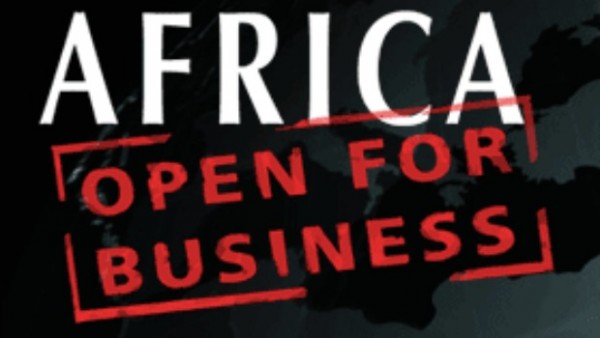The previous wave of digital disruption, triggered by mobile technology, caught most CIOs and organisations off guard.
10 years ago, hardly anyone owned a smartphone. Today, there are around 2 billion in circulation. What’s more, we use them every day to access Uber, WhatsApp, Instagram and many other services that didn’t exist when the first iPhone was released in 2007.
Yet we are only at the start of a digital technology revolution (http://APO.af/3Vj1an) that will profoundly change how we live and work in the next five years. With artificial intelligence, FinTech (especially blockchain) and the Internet of Things coming of age, we can expect digital disruption to accelerate in the years to come.
The previous wave of digital disruption, triggered by mobile technology, caught most CIOs and organisations off guard. Many industry incumbents lost market share to new-age technology companies or experienced declines in brand value and customer satisfaction because they couldn’t keep pace with the demands of a changing customer and employee.
This time, CIOs should ensure that they’re better prepared. The difficulty is that we don’t really know where the technology will take us. We have a vague sense of the direction, but no clear view of the destination.
Thriving in a world of unrelenting change
Against this backdrop of unrelenting change, the only way to survive is to embrace a culture of innovation. Rather than encouraging teams to ‘stick to the rules’, organisations should be ready to experiment, to fail fast, and be able to recover quickly from failure. As futurist Graeme Codrington put it in a recent Sage podcast (http://APO.af/4fPDZL): “The single most important thing you can do to be responsive to change is to experiment – leaders need to create a mindset and a structure that makes constant experimentation possible”
CIOs are now expected to guide the entire business through new ways of working. After all, an IDC Survey reveals (http://APO.af/L6biVI) that more than 40% of line-of-business executives view the CIO as the Chief Innovation Officer.
As the people with their fingers on technology’s pulse, they should embrace their role of championing innovation and agility in the business. It’s not as easy as it seems. Aside from the actual technology, they need to start creating an open, collaborative culture where digital natives can grow well. For constant change to work, it also means using today’s open business management solutions and the power of the cloud to quickly and cost-effectively build out new apps and services. And of course, continual upskilling of the entire team (http://APO.af/CBw8lc) will be needed to keep up - this should happen on a daily basis and should be part of the culture – waiting for annual training seminars simply won’t cut it anymore.
We’re lucky to live in a time where huge technical infrastructures and a massive IT team are no longer necessary to access world-class technology. Deployment is also fast, provided companies are running an open platform that allows them to easily plug in other services and apps via an API.
IoT on tap
Do you want to digitise your factory floor processes and machines to increase automation? Well, today, Internet of Things sensors are cheap and open, and it’s easy to provision a software solution from the cloud using nothing more than a credit card. If it doesn’t work out, it’s not the end of the world because you have made no heavy infrastructure investments.
Today, testing new technologies is easier, faster and less risky than ever before. In fact, the risk today is not experimenting, not trying new things and not failing fast. Companies that are not keeping up with the pace of change could find themselves left behind by a changing world—just think about what happened to Kodak after digital cameras and DVD stores after Netflix.
*Sage is a sponsor at the IDC CIO Summit series (http://IDCCIOSummit.com). Johannesburg will take place 10 & 11 May (Keith will be presenting), Lagos, 18 May, Nairobi, 16 June and Mauritius 16 August.
Distributed by APO on behalf of Sage.For media queries:
Ashmika Panday
Tel: +27 (0)11 803 0030
Mobile: +27 (0)83 296 1680
Ashmika@IdeaEngineers.co.za
Del-Mari Roberts
Tel: +27 (0)11 803 0030
Mobile: +27 (0)72 5958 053
DelMari@IdeaEngineers.co.za
About Sage:
Sage is the market and technology leader for integrated accounting, payroll, and payment systems, supporting the ambition of entrepreneurs and business builders. Today, business builders measure success in strong relationships, partnerships, and communities. It‘s why Sage helps drive today’s business builders with the most intelligent and flexible cloud-enabled software, support, and advice to manage everything from money to people. Daily, more than 13,000 Sage colleagues in 23 countries work with a thriving global community of over 3 million entrepreneurs, business owners, tradespeople, accountants, partners, and developers to champion the success of business builders everywhere. And as a FTSE 100 business, we are passionate about doing business the right way, supporting our local communities through the Sage Foundation.
Sage – the market and technology leader for integrated accounting, payroll, and payment systems, powered by the cloud and supporting the ambition of the world’s entrepreneurs and business builders. Because when business builders do well, we all do.
For more information, visit www.Sage.com.



















